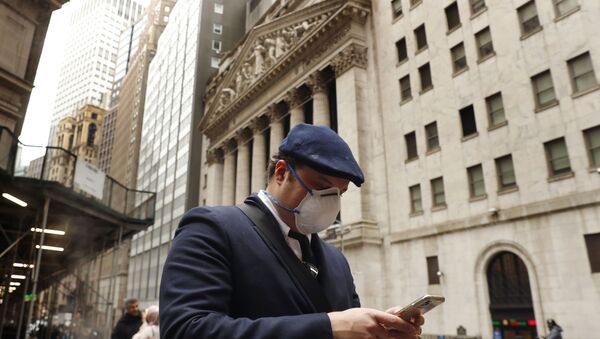The Dow Jones Industrial Average fell 317.6 points (1.1%) on November 12, while the S&P 500 dropped 35.65 points (1.0%) and the Nasdaq Composite slumped 76.84 points (0.7%).
Losses were reported in the crude oil and gas, utilities and basic materials sectors.
The decline comes amid a continued surge in new novel coronavirus cases across the country. According to a CNBC analysis of Johns Hopkins University data, 47 of the 50 US states have experienced at least a 5% uptick in average daily new cases.
Some 143,231 new cases of the novel coronavirus were reported nationwide on Wednesday, according to Johns Hopkins University figures.
Speaking to attendees of a virtual panel hosted by the European Central Bank, Powell revealed Thursday that the Federal Reserve views the spike in COVID-19 cases as the "main risk" to the US economy.
"The main takeaway from all of this is that even after the unemployment rate goes down ... and there's a vaccine, there's going to be a probably a substantial group of workers who are going to need support as they find their way in the post-pandemic economy because it's going to be different in some fundamental ways,” Powell said, as reported by The Hill.
“We've got new cases at a record level. We've seen a number of states begin to reimpose limited activity restrictions, and people may lose confidence that it's safe to go out,” he added.
Powell argued that even if COVID-19 vaccine distribution begins before the end of the year, the fact remains that the US economy is in dire need of further fiscal support from Congress, which has repeatedly failed to agree on a bipartisan relief deal for the American people.


